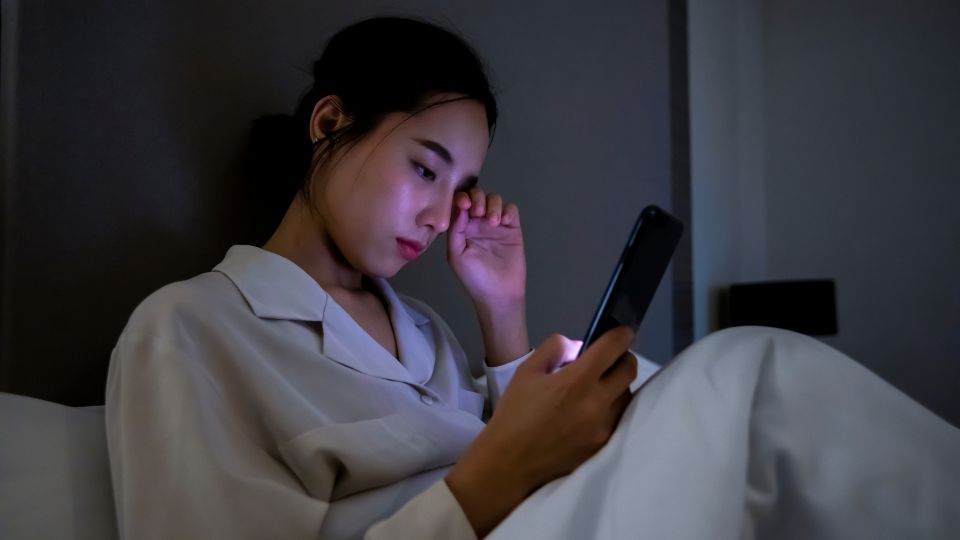Social media is a big part of most of our lives, and it’s amazing to think it hasn’t even been around for thirty years. We rely on it for entertainment, a sense of community, and even for our careers. It’s so deeply integrated into the fabric of our lives that it’s no surprise that many of us find it difficult to disengage: social media is a major reason many people don’t get enough sleep. In the following article, we’ll look at the effects of social media on sleep, the health costs of sleep deprivation, and how you can control your use of social media and get better rest.
What Is Sleep Deprivation?
Sleep deprivation is the state someone is in when they aren’t getting enough sleep or good enough sleep. What counts as enough sleep varies from person to person, but for the average adult, it’s thought to be between seven and nine hours per night.
How Common Is Sleep Deprivation?
Some degree of sleep deprivation is very common. In a survey of more than 11,000 respondents in 12 countries, only one in 10 people reported that they slept extremely well. And on average, respondents only got 6.8 hours of sleep per night, with six in 10 trying to catch up by sleeping longer on the weekend.
Who Does Sleep Deprivation Affect?
Sleep deprivation is a problem that affects different age groups. In Australia, at least two problems with sleep are reported by 48% of all adults, and 27% of children aged 12 to 13 and 52% of children aged 16 to 17 don’t get the right amount of sleep for their age groups on school nights. Interestingly, one study found that younger adults fared worse on objective measures from problems with attention brought about by lack of sleep than older ones did.
How Much Sleep Is Lost Due To Social Media?
It’s impossible to say exactly how much sleep deprivation is caused by social media, but it’s a major factor for every age group.
Children
Sleep is being lost because of social media, even in small children. One British study looked at 60 ten-year-old children and found that they missed one night of sleep per week on average due to social media. Even at their age, these children are driven by fear of missing out and are staying on social networks to know what their friends are doing. They should be getting between nine and 11 hours of sleep at this age, but are only getting an average of 8.7 hours per night. Although sleep deprivation may seem trivial compared with some health problems in children, it can seriously impact their development.
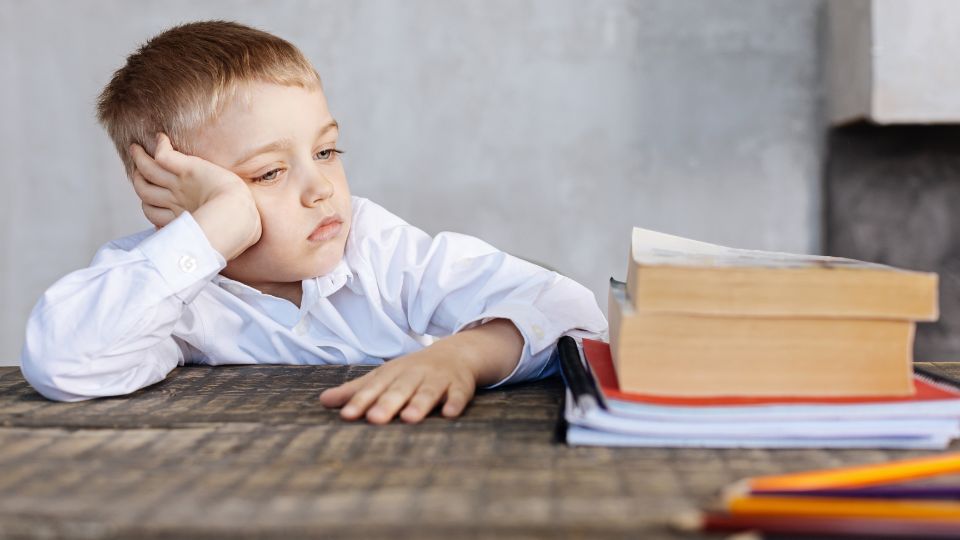
Teenagers
Even before the advent of social media, teenagers had problems with sleep. As a natural part of their development, the time of night when they naturally become sleepy happens at a later hour, something that’s difficult enough to manage with early school start times. Social media only worsens the situation: according to one study, teenagers who use social media heavily are 70% more likely to fall asleep later than average than those who use it an average amount.
Adults
According to research by the Centre for Disease Control in the US, one-third of American adults are not getting the recommended amount of sleep. Statistics about social media use by adults are harder to come by than those regarding younger people’s social media use, but one study determined that American young adults were spending 28.5 hours per week of recreation looking at screens. As this is close to the number of hours a full-time job would consume, it’s hard to imagine technology not being a factor in adult sleep deprivation.
How Much Sleep Do People Need?
How much sleep you need depends on your age. Babies need the most sleep, and then the hours required gradually go down until adulthood. And then, at around the age of 65, the requirement goes down again. Aside from changes that come with age, the need for sleep increases in certain situations like pregnancy, illness, or after physically or mentally demanding experiences.
| Age | Amount Of Sleep Needed Per Day |
| 0-3 months | 14-17 hours |
| 4-11 months | 12-15 hours |
| 1-2 years | 11-14 hours |
| 3-5 years | 10-13 hours |
| 6-13 years | 9-11 hours |
| 14-17 years | 8-10 hours |
| 18-65 years | 7-9 hours |
| 65 years and over | 7-8 hours |
| Pregnant women | 8-10 hours |
Why Does The Body Need Sleep? What Does Sleep Do?
Sleep is essential for many important functions in your body’s systems.
The Brain
During sleep, the brain stores and consolidates information and creates long-term memories. Sleep is essential for effective learning. Sleep also allows the removal of waste products from the brain. During sleep, there is also increased activity in the areas of the brain that regulate emotions.
The Endocrine System
- The pituitary gland releases growth hormones during sleep. This allows the body to repair itself and muscles to grow.
- Sleep is necessary for the production of ghrelin and leptin, two hormones that are essential for the regulation of hunger.
- Cortisol is a hormone associated with stress, but it’s needed for many processes in the body, including maintaining blood pressure at the right level and dealing with inflammation and the immune system. Sleep deprivation can cause elevated cortisol levels.
The Immune System
During sleep, proteins called cytokines are released in the body to fight inflammation, infection and damage. Cytokines can both stimulate and control the immune system.
Conservation Of Energy
Sleep reduces the body’s need for calories because the body is functioning at a lower metabolic rate.
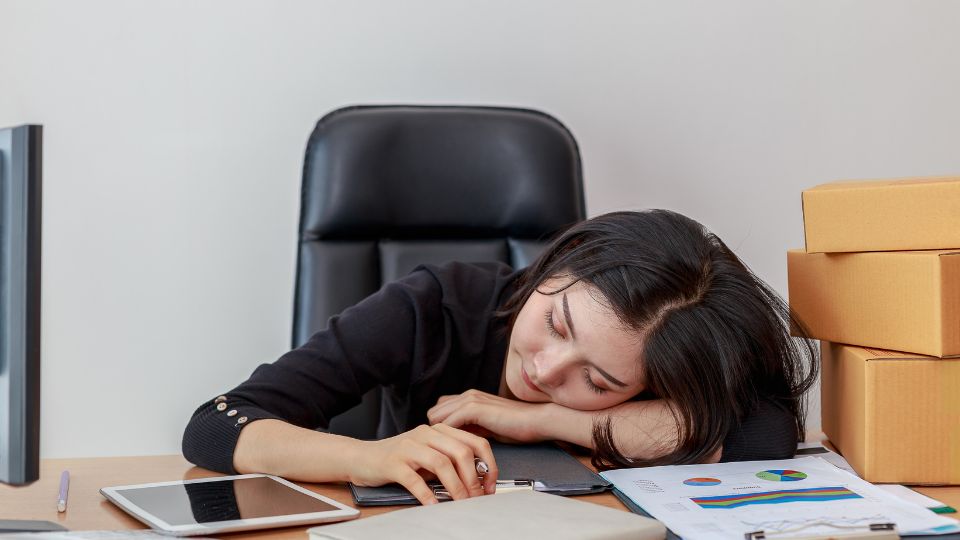
What Does Sleep Deprivation Do To A Person?
The effects of sleep deprivation on adults can be noticeable even in the short term, but over time, damage can accumulate and cause serious health problems. To be as well-prepared as possible for events like accidents or seizures, consider an accredited first aid course.
| Short-Term Effects | Long-Term Effects |
|---|---|
| Poor memory | Lowered immune function |
| Poor concentration and greater distractibility | Depression |
| Poor motor function and coordination | Anxiety |
| Slower reaction times | Lowered sex drive |
| Headaches | Weight gain |
| Greater propensity to overeat | Insulin resistance and increased risk of type 2 diabetes |
| Increased risk of accident and injury | Higher risk of early death (people who get fewer than six hours of sleep per night have a 10 times greater risk of premature death |
| Impaired decision-making | Increased risk of heart disease |
| Low energy levels | At least one study found an association between short sleep and higher risk of colon cancer |
| Greater risk of seizures for epileptics | 30% higher risk of dementia |
| Can trigger manic episodes in people with bipolar disorder |
What Are The Effects Of Sleep Deprivation On Children And Teenagers?
In children, lack of sleep can lead to behavioural problems and an inability to concentrate. In teenagers, it can lead to poor impulse control, risky behaviour, and a higher risk of attention deficit hyperactivity disorder (ADHD) and depression.
How Does Sleep Deprivation Affect The Systems Of The Body?
Immune System |
Cardiovascular System |
Hunger Regulation |
Endocrine System |
Brain and Nervous System |
|
Sleep deprivation reduces the production of cells and antibodies that fight infection, as well as cytokines (immune-protective proteins), making you more vulnerable to illness. |
Sleep deprivation has negative effects on the cardiovascular system leading to a greater risk of cardiovascular disease, including heart attack and stroke. It affects the processes that keep the heart and blood vessels healthy, including those affecting blood sugar, blood pressure and inflammation levels. |
Sleep deprivation is a risk factor for obesity, affecting the body’s production of the hormones leptin, and ghrelin. Leptin tells the body you’ve had enough to eat, and sleep deprivation stops your body creating enough. Ghrelin stimulates your appetite, and sleep deprivation makes your body create too much. |
Hormone production relies on good sleep. For example, sleep is necessary for the production of growth hormone, necessary for tissue and cell repair, growth and development. This is especially important for children and adolescents. |
Sleep is necessary for maintaining the brain, providing a chance for the removal of waste products and the consolidation of learning and other new memories. |
What Are The Symptoms Of Sleep Deprivation In Adults?
You may be more sleep-deprived than you realise. As you miss more and more sleep, you may become used to functioning while fatigued and less sensitive to your own signs of tiredness. Here are some common signs of sleep deprivation in adults.
- Fatigue
- Yawning
- Irritability
- Going to sleep during moments of relative inactivity, like watching television
- Waking up tired and groggy
- Being sleepy all day
- Doing things like turning on the car radio to keep you alert while driving
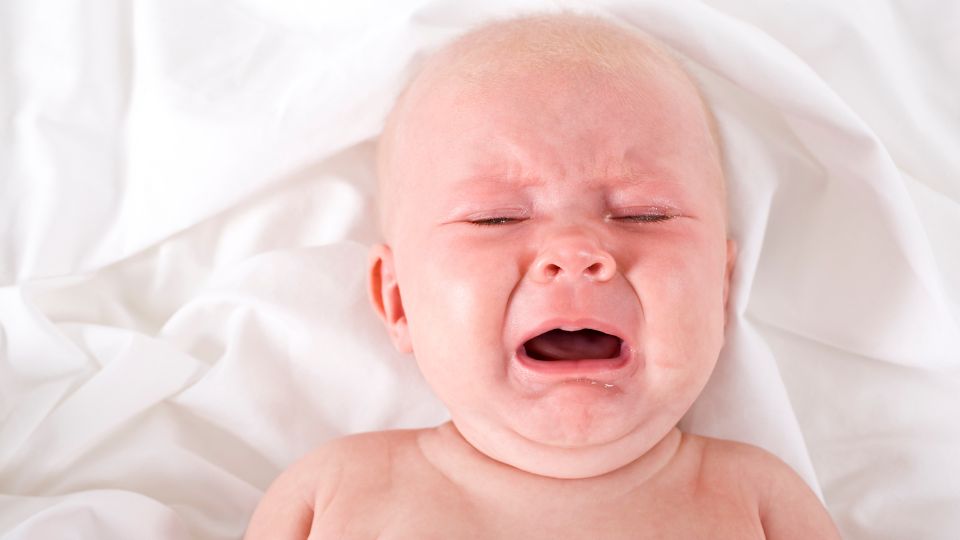
What Are The Symptoms Of Sleep Deprivation In Children?
Children do not necessarily show sleepiness as a symptom of sleep deprivation; in fact, they may seem more agitated and volatile.
- Hyperactivity
- Irritability
- Tantrums
- More naps than usual during the day
- Not wanting to get out of bed in the morning
- Grogginess in the morning
How Does Screen Time Affect Your Sleep?
Social media use at bedtime can not only stop you from getting as much sleep as you need, but it can also reduce the quality of your sleep. A meta-analysis of 20 studies involving 125,198 children found that ‘bedtime access and use of media devices was significantly associated with inadequate sleep quantity; poor sleep quality; and excessive daytime sleepiness‘.
How Does Technology Cause Lack Of Sleep?
Blue Light From Screens Interferes With Your Internal Clock
One of the most important ways technology can get in the way of a good night’s sleep is physiological: the light from your device’s screen tells your brain it’s daytime, and your brain passes on the message to the rest of your body. Here’s how that happens.
Circadian Rhythm: How The Body Regulates Sleep
Your body’s sleep is governed by a 24-hour cycle called the circadian rhythm. Most life forms have a circadian rhythm, and it regulates many physical and mental processes in the body; sleep is just the most notable. For example, the release of hormones and the body’s digestive functions are intertwined with the circadian rhythm.
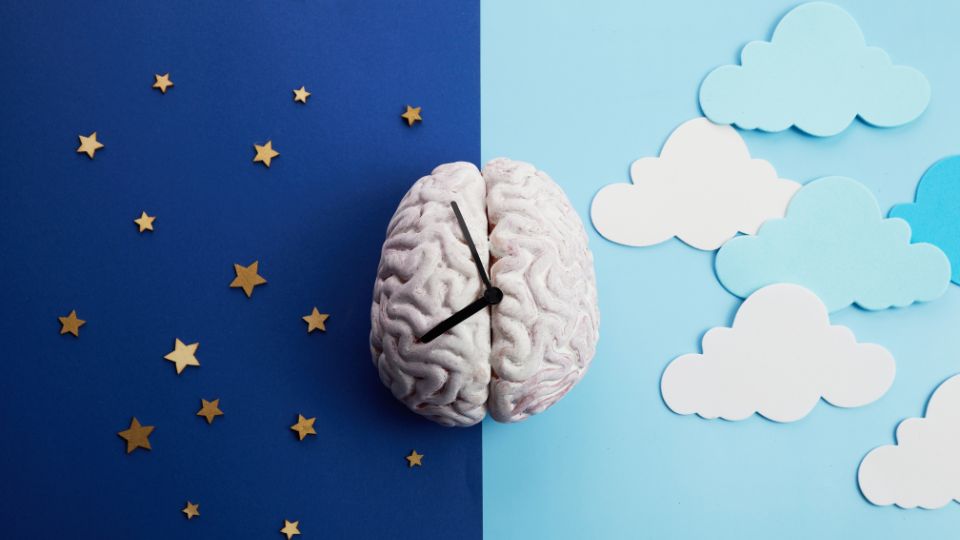
How Light Affects Your Circadian Rhythm And Your Sleep
Although your circadian rhythm is a natural part of your body’s functioning, it’s affected by cues from the outside world, especially light. Light goes through the retina of the eye to reach a cluster of cells in the brain called the suprachiasmatic nucleus (SCN), the master clock regulating the body’s circadian rhythm. This master clock, in turn, sends information through the central nervous system about what time of day it is and what functions need to take place, including sleep.
Blue Light From Screens Interferes With Your Internal Clock
Without artificial light, your sleep-wake cycle would align itself with the rising and setting of the sun: in the morning, exposure to sunlight would tell the SCN that it was daytime, prompting it to signal to the pineal gland (a small gland deep in the brain) not to produce melatonin, a hormone that promotes sleep. Likewise, when it gets darker later in the day, this cues the production of melatonin, making sleep easier. So, if you use your phone or another device with a screen late at night, your body gets the message that it’s still daytime and you need to stay alert. Note: the light emitted by your social media devices is ‘blue’ light – this is the same type of light as that from the sun.
Mental Stimulation: What’s On The Screen Keeps Your Mind Alert
As if blue light were not enough, social media interferes with your sleep by engaging you emotionally and psychologically. But some types of screen and social media use are more disruptive to your sleep than others: generally, the more active engagement an app or device requires from you, the worse it is for your sleep. ‘Passive’ use of screens is less harmful to your sleep than more ‘active’ forms of engagement. A passive form of engagement is watching television or reading a book on an e-book reader (preferably one that isn’t backlit). Anything where what is on the screen changes without any input from you. Active use of technology includes things like playing a video game or interacting with friends in Instagram messages.
Use Of Social Media And Other Technology Takes Up Valuable Sleep Time
The simplest way that technology can rob you of sleep is simply by using up the time when you should be sleeping. If you’re one of the many people who stay up scrolling through social media at night telling yourself, ‘just ten more minutes, and I’ll go to sleep’, only to do the same ten more times, you’ll know how easy it is to lose hours of precious sleep time to social media.
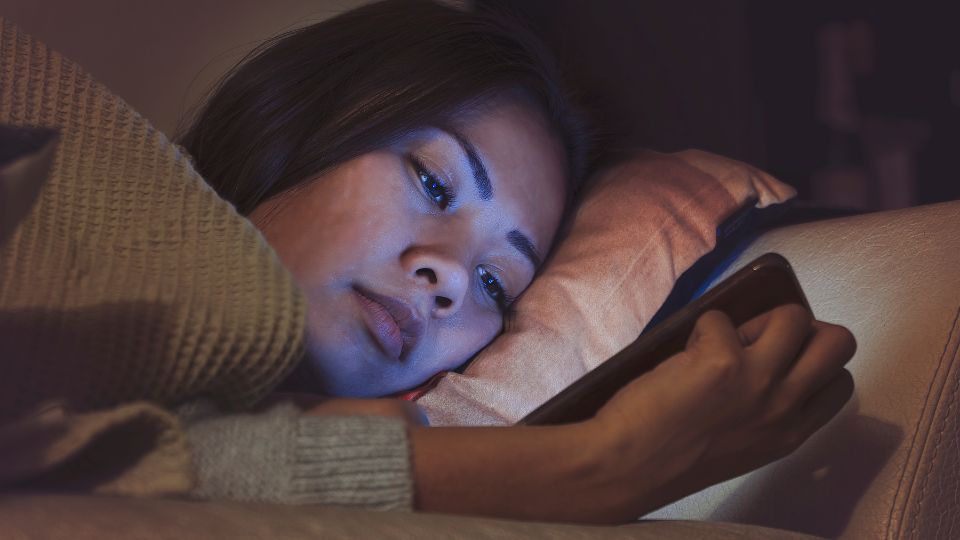
Fear Of Missing Out Means Notifications Interrupt Sleep
For teenagers, excessive social media use, especially at night, can be driven by fear of missing out, or FOMO. A study in 2019 by the University of Glasgow found that for teenagers who use social media at bedtime, a significant motivation was anxiety about missing out on ‘shared references and group jokes‘ and that much of the time, they feel obliged to respond promptly on social media, rather than enjoying it.
Revenge Bedtime Procrastination
A phenomenon related to fear of missing out, but more likely to affect adults, is revenge bedtime procrastination. This is a recently recognised problem where people whose waking lives are taken up with adult responsibilities delay their bedtime and sleep in favour of doing fun activities like watching television or using social media in a desperate attempt to grab some time for themselves.
Tips For Using Social Media (And Still Getting A Good Night’s Sleep)
Have A Set Time Without Using Social Media
If it’s hard to impose limits on yourself and stick to them, you could enlist technology to help you beat technology. There are a growing number of apps you can install on your phone to block you from social media or restrict the amount of time you spend on it if you think willpower alone won’t cut it.
Make Your Phone Less Accessible
Keep your phone charging in another room, so there’s less temptation to pick it up and look at it during the night. If you use it as your alarm clock, consider picking up a real alarm clock instead. At the very least, you could put your phone somewhere far away from your bed while you sleep, so it’s more difficult to pick it up and look at it – on top of the wardrobe is a good option.
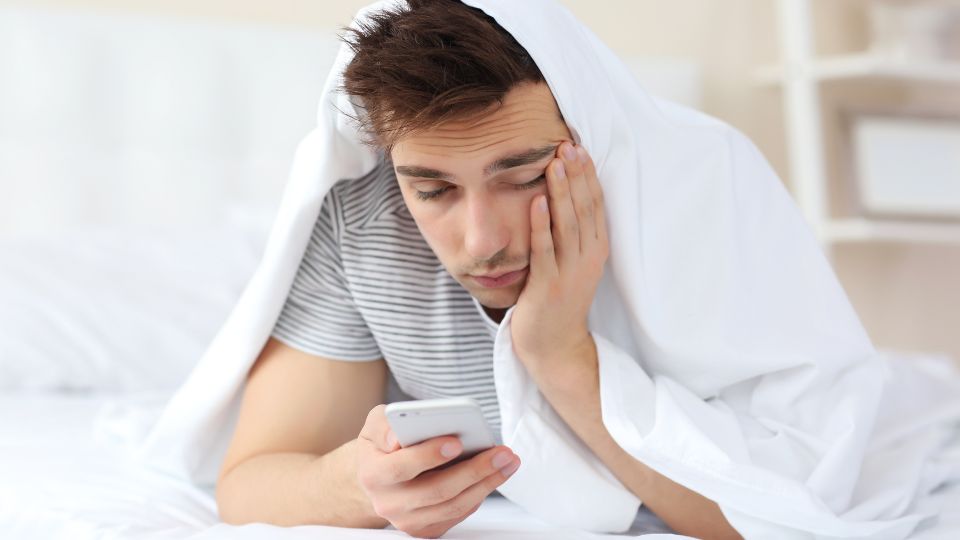
Turn Off Your Notifications
If you have to have your phone in your bedroom while you sleep, turn off your social media notifications so that your sleep is not constantly interrupted by noises and lights. You can go into the settings for individual apps or, even better, just put your phone on silent or ‘do not disturb’ mode.
Consider Options For Minimising Blue Light Exposure
Try dimming your phone screen when using it in the evening or changing it to white text on a black background instead of the other way around. Another adjustment you can make to your phone is changing the light of the screen to be warmer. Most smartphones (including Apple, Samsung and Android) have an option in settings to filter blue light and change the screen to a warmer tone.
Get The Most Out Of Daytime
Try to get more out of the daytime to avoid feeling as though you have to squeeze in much-needed recreation time by scrolling when you should be sleeping. Get rid of any commitments that aren’t completely necessary. If you can get to sleep earlier and wake up rested, you may be able to fit in more in the daytime, including recreation or other activities to improve your life, like an accredited first aid course.
Other Than Social Media, What Else Causes Sleep Deprivation?
Of course, people had trouble sleeping before the smartphone was invented. Here are some other factors that could be behind your lack of sleep.
Lifestyle Factors
Poor Sleep Hygiene
Sleep hygiene is a term used to describe the habits conducive to good sleep, including avoiding large meals, alcohol, caffeine and strenuous exercise close to bedtime and keeping electronic devices out of the bedroom at night.
Work
People doing shift work may find it difficult or impossible to manage a regular sleep-wake cycle, as many people whose work involves travel, like airline pilots. There is some overlap here between lifestyle causes and circadian rhythms, as this kind of work can cause shift work disorder (also known as shift work sleep disorder)
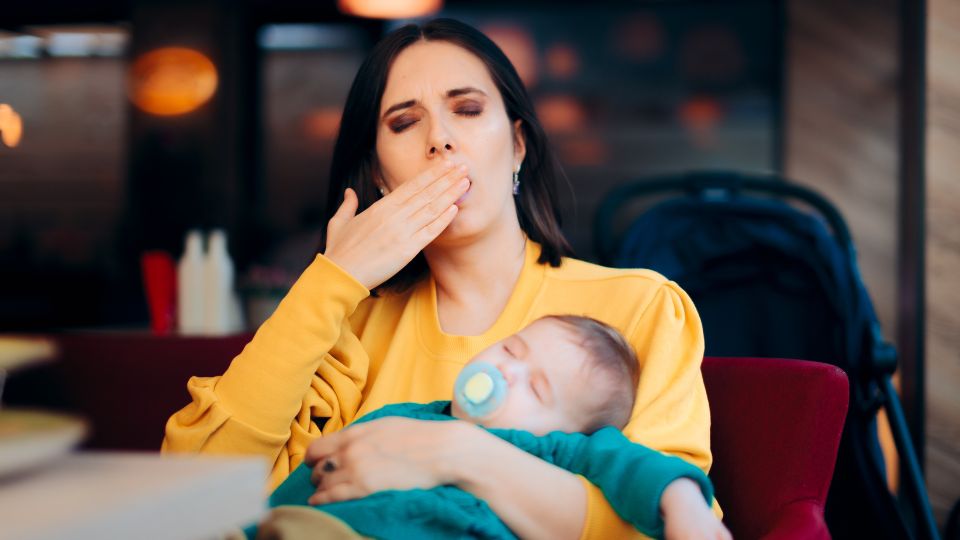
Parenting Demands
It’s extremely common for parents to suffer sleep deprivation because of their children’s demands, especially at the infant stage when they need to be fed or comforted several times a night.
Sleep Disorders And Other Medical Conditions
- Insomnia
- Narcolepsy
- Restless legs syndrome
- Obstructive sleep apnoea
- Circadian rhythm disorders
- Jet lag disorder
- Shift work disorder
- Advanced sleep phase disorder
- Delayed sleep phase disorder
- Non-24-hour sleep-wake disorder (N24)
- Irregular sleep-wake rhythm disorder
- Heart disease
- Thyroid problems
- High blood pressure
- Anaemia
- Mental health problems
- Medications, including antihistamines and antidepressants
How Can I Manage My Sleep Deprivation?
Other than controlling your use of social media and technology, there are many simple steps you can take to try to improve your sleep. Sleep hygiene is the cultivation of habits that help with getting good sleep. Here are some suggestions for better sleep hygiene.
Wind Down Before Bed
Get at least one hour of wind-down time before bed without social media (and ideally, without using other devices with screens).
Get Some Sun In The Morning
Open your curtains and let in some sunlight as soon as possible after waking up to help set your circadian rhythm.
Make Sure Your Bedroom Is Dark Enough
Avoid bright light in the evening, and make sure your bedroom is as dark as possible for sleep. If you have any electronic devices in your bedroom with lights that can be seen in the dark, like illuminated digital clocks or ‘standby’ lights, turn them off at the wall. Consider blackout curtains if street lights keep your room from being dark enough at night.
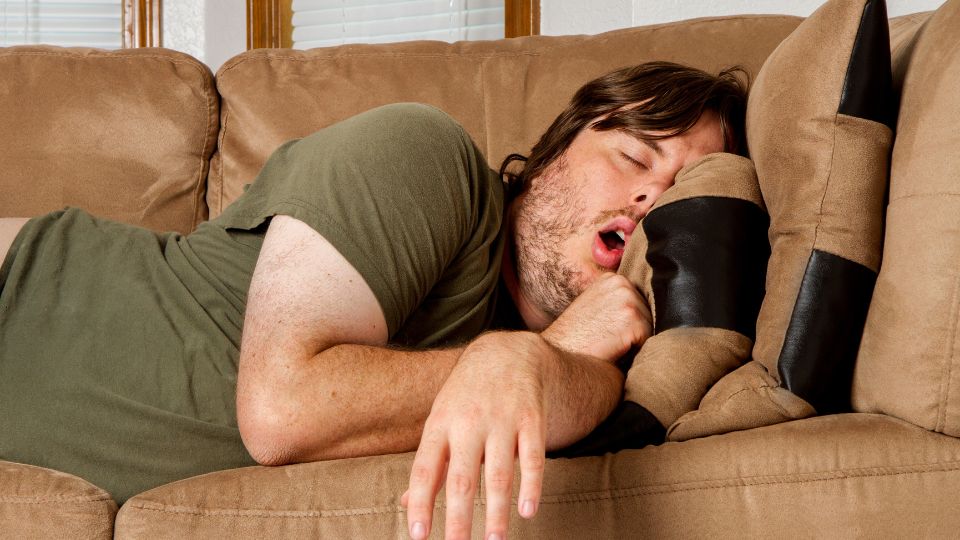
Watch Your Naps
Don’t take daytime naps, or limit them to 30 minutes or less, especially in the afternoon. Avoid naps altogether after 3:00 in the afternoon.
Manage Your Caffeine Intake
Avoid caffeine after midday, or at the very least, for a few hours before bed.
Keep Your Bedroom Cool
Keep your bedroom at a comfortable temperature. This will generally be on the lower side because your body temperature drops during sleep.
Minimise Noise
Make your bedroom as quiet as possible. If it’s still not quiet enough, use a fan or a white noise machine to screen out noise.
Keep To A Routine
Go to bed and wake up at the same time every day. Try to keep the same sleeping schedule even on weekends, rather than skimping on sleep during the week and indulging in weekend sleep-ins to make it up. Keeping a regular sleeping schedule primes your body and mind to expect sleep at a particular time, and changing things on the weekend will make it harder to readjust during the week.
Don’t Eat Dinner Too Late
Avoid heavy meals for at least three hours before bedtime to avoid being kept awake by indigestion when you lie down.
Get Regular Exercise
Exercise, as well as any other physical or mental exertion or just enough time spent awake, can help to build sleep pressure (also called homeostatic sleep drive). But be careful not to exercise too close to bedtime, as this can make it difficult for your body temperature to cool enough for sleep.
Drink Less Alcohol, And Don’t Drink It Too Close To Bedtime
Alcohol can help you to fall asleep, but it can interfere with the quality of sleep you get as the sedative effect wears off during the night.
Try Relaxation Techniques
If you get into bed and find your mind is still racing, you can try a simple relaxation technique like progressive muscle relaxation to quiet it.
Is There A Cure For Sleep Deprivation?
There is no one cure for sleep deprivation that is guaranteed to work for everyone. However, there are many treatments ranging from simple behavioural changes that can be enacted at home to prescription medications and participating in sleep studies.
Can Sleep Deprivation Be Prevented?
Sleep deprivation can’t be completely prevented because it happens for a wide variety of reasons. To minimise the risk of sleep deprivation, you can make sleep a priority and follow recommendations on sleep hygiene, like avoiding caffeine later in the day and avoiding screens for at least one hour before bed.
When Should I See A Doctor About My Sleep Deprivation?
You don’t have to wait until things get bad to see a doctor about problems sleeping, but you should definitely see a doctor if:
- You’ve tried applying good sleep hygiene, and you’re still having problems
- You get sleepy or start falling asleep during the day, or experience problems with concentration or memory
- Your sleeping problems have continued for thirty or more days
Summary
Hopefully, we’ve convinced you of the importance of good sleep for your health and motivated you to take control of your social media use (and try our other suggestions for better sleep hygiene). Once you start getting better sleep, you’ll be amazed at the difference in how you feel and how much more energy you have. And don’t worry – your phone isn’t going anywhere.
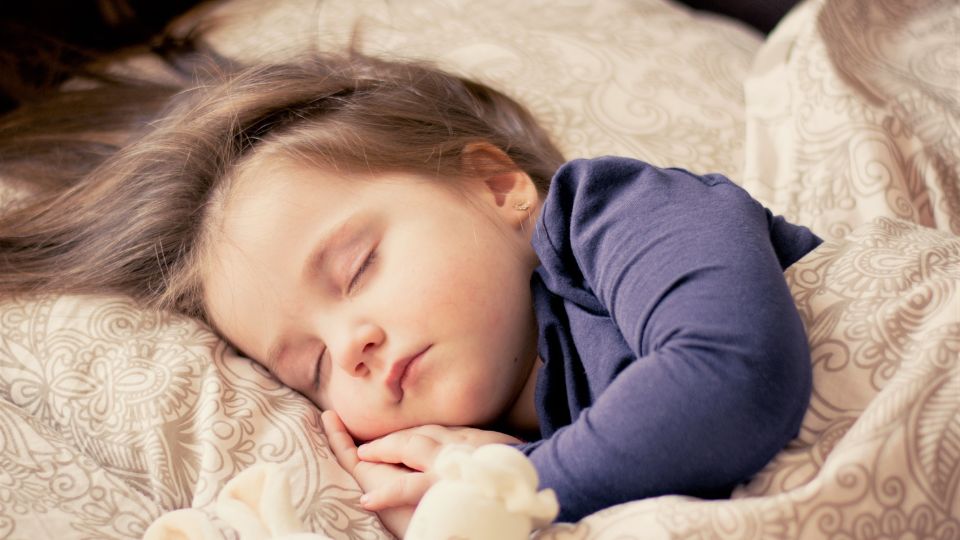
Can You Get Too Much Sleep?
‘Too much’ sleep, that is, sleeping more than what’s considered normal for your age group and circumstances, will not directly harm your health. However, it may interfere with your circadian rhythm, as keeping to a regular timetable is important in getting enough sleep. However, sleeping more than normal can be a warning sign of some health problems, including heart disease or sleep apnoea.
Are There Different Types Of Sleep Deprivation?
Sleep deprivation can be divided into acute and chronic, depending on how long it has been going on.
Chronic
Chronic sleep deprivation is also known as insufficient sleep syndrome. This is a period of insufficient sleep that lasts for three months or more.
Acute
Acute sleep deprivation happens for a short time, usually no more than a few days.
Can Sleep Deprivation Kill You?
Sleep deprivation can increase your risk of potentially fatal health conditions in the long term, and it can increase your risk of fatal accidents in the short term, but as far as we know, it can’t directly cause sudden death, unlike some conditions. The longest verified amount of time a human has gone without sleep is Randy Gardner’s world record of 264 hours, or around 11 days, set back in 1963. Although he suffered serious effects near the end of his experience, he recovered after a 14-hour sleep. None of the people who subsequently claimed to beat his record (none have been monitored as reliably as Gardner, who had a Stanford sleep researcher present at his attempt) are reported as having died of their sleep deprivation either. Even in experiments on animals, it’s difficult for researchers to tell whether deaths result from sleep deprivation or stress. To be prepared for a medical emergency, whether it’s related to sleep deprivation or not, consider first aid training.
What Are The Stages Of Sleep Deprivation?
Stage 1: 24 Hours Without Sleep
Going for 24 hours without sleep will feel rough. You will feel groggy, find it hard to concentrate, be less alert and physically coordinated and generally not perform at your best. In terms of cognitive impairment, 24 hours without sleep is roughly the equivalent of having a blood alcohol level of .10, which shows how even this degree of sleep deprivation can increase the risk of accidents. But you will recover quite quickly if you start sleeping well again (but not that quickly – it takes up to four days to recover from losing one hour of sleep).
Stage 2: 36 Hours Without Sleep
After 36 sleepless hours, your symptoms will intensify. The cognitive impairment you experience at 24 hours without sleep will become more severe. In this stage of sleep deprivation, you may experience microsleeps, periods of sleep lasting a few seconds, which you might experience as a moment of inattention rather than noticing that you went to sleep. Unsurprisingly, this is even more dangerous for drivers than stage one. The NSW Centre for Road Safety points out that if a driver travels at 100 kph and has a microsleep lasting four seconds, there is enough time for the car to travel 111 meters: plenty of time for the car to drift into oncoming traffic.
Stage 3: 48 Hours Without Sleep
At 48 hours without sleep, you will be experiencing sleep deprivation extreme enough that it’s widely considered unethical for academics to induce it for research deliberately. For this reason, it’s difficult to find new information about it. But we know that microsleeps are more likely at this point, and fatigue, irritability, and all the difficulties experienced at 36 hours of sleep worsen. Not only that, but you may experience anxiety, depersonalisation and even hallucinations.
Stage 4: 72 Hours Without Sleep
After 72 hours without sleep, your microsleeps will come more often and last longer, and your urge to sleep will be more intense. You may suffer from disordered thinking, depersonalisation, and delusions. You may also have more elaborate hallucinations: after 72 hours without sleep, one US Navy Seal was ‘mistaking an airplane for a flying horse, perceiving a bridge as a giant Pez dispenser, and seeing a squat, muscular body builder where there was in fact a fire hydrant‘.
Stage 5: 96 Hours Without Sleep
As well as an almost intolerable urge for sleep, at this stage, you may experience delusions, paranoia and hallucinations, possibly teetering into a state of sleep deprivation psychosis.
What Is The Sleep Cycle?
A sleep cycle is a unit of sleep that lasts about 90 minutes and comprises four different kinds of sleep (sleep stages). Of these stages, one will be rapid eye movement (REM) sleep, and three will be non-rapid eye movement sleep (NREM). You need to get between four and six cycles each night to get the full benefit of sleep.
The Stages Of Sleep
- NREM stage one (also called N1) is the transition from wakefulness to light sleep. At this stage, your brain waves, heart rate, and eye movements slow down. This stage only goes for about 7 minutes. N1 makes up about 5% of your total sleep.
- NREM stage 2 (N2): Light sleep leads into a deep sleep. Your body temperature goes down. Your eye movements stop. Your heart rate drops, and your muscles continue to relax. Your brain waves spike briefly, then slow down. You spend the most time in this stage: the length of the first N2 stage is about 25 minutes, then with each subsequent cycle, it gets longer. N2 makes up about 45% of your sleep.
- NREM stage 3 (N3): Deep sleep begins. Your eyes and muscles are immobile. Brain waves slow even more. The body repairs cells, tissues, and muscles. Your memories are consolidated. N3 makes up 25% of your total sleep time.
- REM: This stage starts around 90 mins after you fall asleep. Your eyes move rapidly under closed lids. Your brain waves also increase. The brain processes information in this stage. REM sleep is also when dreaming occurs.
Is Sleep Deprivation Different From Insomnia?
Yes. Sleep deprivation is a problem of not having enough opportunity to sleep, or not giving yourself enough opportunity to sleep. It’s thought of as a ‘voluntary’ sleep disorder. Insomnia, on the other hand, is when you have plenty of opportunity to sleep, but can’t sleep when you try.
What Are Some Common Sleep Disorders?
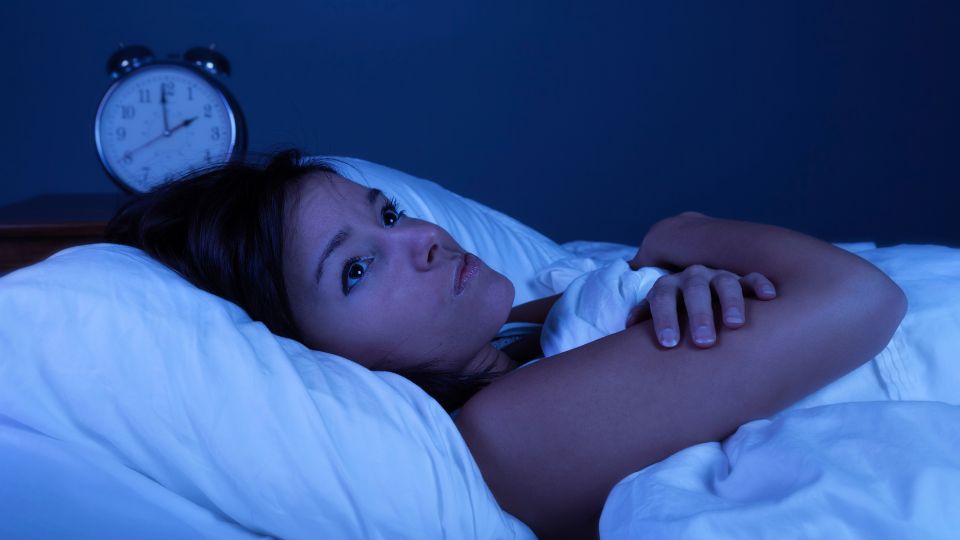
Insomnia
Insomnia is a sleep disorder where people have trouble getting to sleep (even with the opportunity to sleep), wake up in the night and can’t get back to sleep, wake up too early, or all three. Insomnia is the most common sleep disorder. Insomnia can be acute (short-term) or chronic (lasting for three months or more).
Narcolepsy
Narcolepsy is a sleep disorder that causes people to fall asleep suddenly at unexpected times. People with narcolepsy feel sleepy during the day and find it difficult to stay awake for long periods. Other symptoms can include sleep paralysis and hallucinations. They can also suffer from cataplexy, or the sudden weakness of the muscles. Caused by a neurological condition, narcolepsy can be treated but not cured.
Restless Legs Syndrome
People with restless legs syndrome have an uncontrollable urge to move their legs in the evening or at night, making sleeping difficult.
Sleep Apnoea
Obstructive Sleep Apnoea
In obstructive sleep apnoea, the sufferer’s upper airway is blocked during sleep, stopping them from getting enough air. The blockage is usually caused by the muscles controlling your airway relaxing too much, causing the tissues in the back of the throat to sag into the airway and narrow the space that air must pass through. This could cause you to wake up repeatedly during the night to catch your breath, but you probably won’t even remember it. It can also cause snoring.
Central Sleep Apnoea
In central sleep apnoea, the sufferer has trouble breathing during the night, but instead of being caused by physical issues in the airway, it’s caused by the failure of the brain and nervous system to consistently send the signal to breathe.
Complex Sleep Apnoea
A third type of sleep apnoea combines obstructive sleep apnoea and central sleep apnoea.
Circadian Rhythm Sleep-Wake Disorders (Crswd, Also Known As Circadian Rhythm Disorders, Or Circadian Rhythm Sleep Disorders)
Your circadian rhythm is a 24-hour cycle your body follows, which regulates many of your biological functions, perhaps most notably sleep, using light cues from your environment through the eyes. When this rhythm is out of sync with your actual sleep and wake times, the resulting circadian misalignment can cause a circadian rhythm sleep-wake disorder.
- Jet Lag Disorder: this is caused by long travel over two or more time zones. Your internal clock is still functioning as if it’s in the time zone you came from, causing fatigue.
- Shift Work Disorder: affecting people who work late at night or early in the morning, shift work disorder can cause daytime sleepiness and insomnia at night.
- Advanced Sleep Phase Disorder: this is when someone falls asleep and wakes up two hours or more before they wish to. Advanced sleep phase disorder becomes more common with age.
- Delayed Sleep Phase Disorder: the opposite of advanced sleep phase disorder, delayed sleep phase disorder is when your sleep-wake cycle is two or more hours later than what is considered a normal time.
- Non-24-Hour Sleep-Wake Rhythm Disorder: when your internal clock doesn’t reset normally every 24 hours, causing your sleep-wake cycle to shift around the clock, this is called non-24-hour sleep-wake rhythm disorder or free-running disorder. This is common in completely blind people who can’t perceive light.
- Irregular Sleep-Wake Rhythm Disorder: this disorder is typified by short periods asleep that don’t follow any stable rhythm or 24-hour cycle.
How Is Sleep Deprivation Diagnosed?
When you tell your doctor you have trouble sleeping, they are likely to take a medical history and physical exam and ask questions about your sleeping habits and what may be causing any problems, including exploring possible underlying causes. Before this first consultation, it may be a good idea to keep a sleep diary to show the doctor. Some things you might record for each day are your sleeping and waking times, how much sleep you get, the length of any naps you take, and what you were doing leading up to bedtime.
Sleep Study
If a sleep disorder is suspected, you may be asked to have a sleep study, or polysomnogram. This involves recording your heart rate, breathing, blood oxygen levels and brain waves while you sleep using sensors attached to your body. With this technique, doctors can work out what is causing disruptions to your sleep, and it can help them diagnose sleep disorders like narcolepsy and obstructive sleep apnoea.
How Is Sleep Deprivation Treated?
Of course, the treatment for sleep deprivation is sleep, but if things were that simple, no one would present at a doctor’s office with sleep deprivation. How sleep deprivation is treated depends on the reason for the sleep deprivation.
Treatment For Sleep Deprivation Caused By Lifestyle Habits
If it’s been caused by bad habits like problems with social media use or general poor sleep hygiene, it may be possible to address the problem by instituting good habits (i.e. good sleep hygiene) instead. If the problem is caused by behaviour like revenge bedtime procrastination, you may have to address the issues in your waking life causing you to grab for free time when you should be going to sleep.
Treatment For Sleep Deprivation Caused By Circadian Rhythm Disorders
For sleep deprivation caused by circadian rhythm disorders, the treatment can include a combination of changes to improve sleep habits, bright light therapy and prescription melatonin to help reset your circadian rhythm.
Treatment For Sleep Deprivation Caused By Involuntary Sleep Disorders
Insomnia
Although insomnia is when you can’t sleep even when you give yourself enough opportunity to sleep, doctors may suggest trying some of the same sleep hygiene steps that work for people with sleep deprivation induced by lifestyle choices. A doctor will also look for underlying causes for insomnia, including life issues and mental, emotional and physical problems. Other sleep disorders like sleep apnoea may be identified, in which case they will be treated appropriately. If these are not the issue, treatment for insomnia can include cognitive behavioural therapy, medication, light therapy or sleep restriction.
Narcolepsy
Narcolepsy is typically treated with medications. Those used include stimulants for daytime sleepiness and antidepressants to treat cataplexy, as well as the sleep paralysis and hallucinations that can sometimes accompany this condition.
Restless Legs Syndrome
Restless legs syndrome can be the result of an underlying condition, in which case the treatment of the condition can relieve the restless legs symptoms. If there is no associated condition, restless legs syndrome can be treated with medications, including sedatives, anti-seizure drugs, and drugs that act on the dopamine in the brain.
Obstructive Sleep Apnoea
Mild cases of obstructive sleep apnoea can sometimes be improved by lifestyle interventions like losing weight, quitting smoking, reducing alcohol intake, or even sleeping on your side instead of on your back. If this doesn’t help, your doctor will probably suggest a device to help your breathing, like a continuous positive airway pressure (or CPAP) machine, or surgery.
Central Sleep Apnoea
Central sleep apnoea is often caused by some other condition or medication, so for example, if your central sleep apnoea is caused by heart failure, it may be improved by treating this condition. This form of sleep apnoea is also often treated with a CPAP machine.
Complex Sleep Apnoea
Complex sleep apnoea is treated by addressing any other underlying issues and using CPAP and similar breathing devices.
Treatment For Sleep Deprivation Caused By Underlying Medical Problems
If your sleep deprivation is due to a medical problem, treatment will involve addressing this underlying issue and trying to fill the gap with good sleep hygiene while you wait for any treatments to take effect, or while your doctor tries to find the right treatment for you. For example, if your sleep deprivation is induced by hypothyroidism (low level of thyroid hormone), your doctor will prescribe medication to get your thyroid hormones back to normal, and in the meantime, will probably give you general sleep hygiene advice like keeping your bedroom cool and dark.

